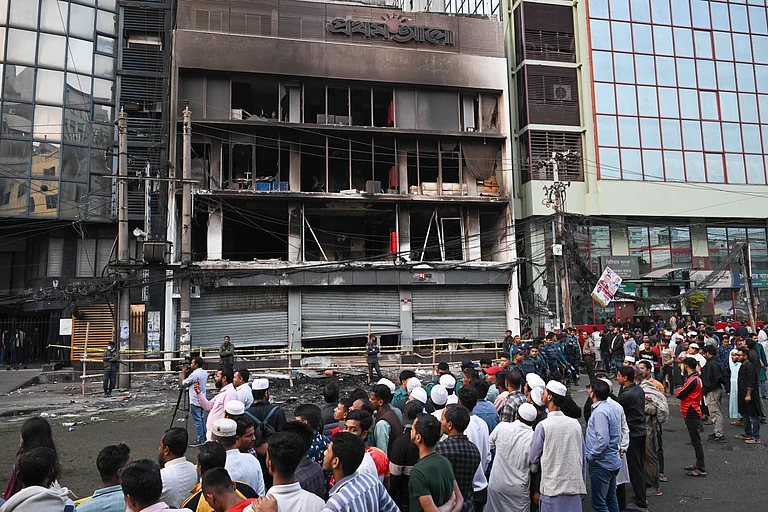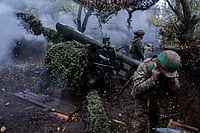Political unrest and violence continued to show their after-effects in Bangladesh after the abrupt exit of Sheikh Hasina as Prime Minister, with the death toll in the protests since mid-July rising to 440.
Hasina is currently placed in a safe house in India and is likely to stay in the nation for a few more days.
Meanwhile, Bangladesh President Mohammed Shahabuddin formally dissolved the Parliament on Tuesday and made way for the formation of an interim government.
BANGLADESH PROTESTS | TOP POINTS
MOHAMMAD YUNUS AS INTERIM GOVT HEAD
Bangladesh President Mohammed Shahabuddin dissolved the Parliament on Tuesday and appointed Nobel laureate Mohammad Yunus as the head of the interim government in the nation.
The decision came after a meeting of the President with chiefs of the three defence services and a 13-member delegation of the Anti-Discrimination Student Movement at Bangabhaban (presidential palace).
President's Press Secretary Md. Joynal Abedin said late Tuesday that rest of the members of the interim government will be finalised after consultations with other political parties.
The 84-year-old Yunus had according to the student movement group agreed to heading the interim government earlier. Yunus -- who is currently in Paris -- welcomed the ouster of Sheikh Hasina-led government, terming it to be Bangladesh's "second liberation".
VIOLENCE AND CONTROL
Violence continued to hit Bangladesh even though the Army had taken charge on Monday, with the death toll in the unrest since mid-July rising to 440. The numbers went up after 100 deaths that were reported on Monday, Prothom Alo said.
Several establishments including Hindu temples, households and businesses were vandalised, women assaulted and at least two Hindu leaders associated with Hasina's Awami League Party were killed n the violence, two community leaders in Dhaka said.
However, with continuous patrolling by the army and police, the situation in Dhaka remained largely calm on Tuesday, local media reports suggested.
Government offices, shops, education institutions reopened after a long period of closure given the violent events taking place in the country.
SHEIKH HASINA'S WHEREABOUTS
Sheikh Hasina landed at Uttar Pradesh's Hindon Airbase in India on Monday evening in a Bangladeshi Air Force plane.
Since then, she had been moved to a safehouse in an unspecified location under heavy security, people familiar with the matter were cited as saying by news agency PTI.
The Bangladesh military aircraft flew back to an air base in Dhaka on Tuesday, leaving Hasina to remain in India.
The former Prime Minister, whose travel plans hit a roadblock amid uncertainty of legal protection from the UK, is likely to remain in India for the next of couple of days.
KHALEDA ZIA RELEASED
Former Prime Minister and Bangladesh Nationalist Party (BNP) chief Khaleda Zia, meanwhile, was released from house arrest on Tuesday as per the President's spokesman.
The 79-year-old Zia has been battling several health issues, including those related to heart, kidney and lung.
The President's decision to release Zia, who was jailed in 2018 following her sentencing in a graft case, came after her rival 'Begum' Sheikh Hasina resigned as the Prime Minister.
WHAT INDIA SAID
The central government on Tuesday held an all-party meeting to discuss the tense situation in Bangladesh.
Addressing the Parliament, External Affairs Minister S Jaishankar informed that former Bangladesh PM Sheikh Hasina had made a request for refuge in India on a short notice on Monday.
Jaishankar, expressing concern over the instability in India's neighbouring nation, noted that the government is in touch with the Indian community in Dhaka through diplomatic channels.









.jpg?auto=format%2Ccompress&fit=max&format=webp&w=768&dpr=1.0)


.jpeg?auto=format%2Ccompress&fit=max&format=webp&w=768&dpr=1.0)
















